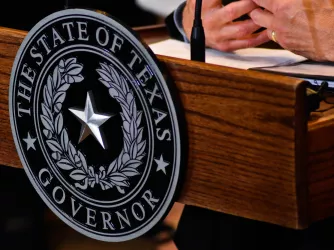Table of Contents
FIRE Files Supreme Court 'Amicus' Brief Supporting Freedom of Association in 'Christian Legal Society v. Martinez'
Today, the Foundation for Individual Rights in Education (FIRE) filed an amicus brief with the U.S. Supreme Court. FIRE is asking the Court to defend the First Amendment right to freedom of association by overturning the Ninth Circuit Court of Appeals' decision in Christian Legal Society v. Kane, which allowed University of California Hastings College of the Law to forbid its chapter of the Christian Legal Society to organize around shared religious and cultural beliefs. FIRE's brief, which was joined by the national student organization Students For Liberty, also pointed out that the Ninth Circuit's decision let Hastings demand that all groups accept "all comers" as voting members, which leaves groups with minority viewpoints subject to hostile takeovers by students in the majority.
As I said in today's press release about the brief, if student organizations cannot require that their leaders and voting members actually share the group's viewpoints, freedom of association on college campuses will be stripped of all meaning. If we are to have meaningful freedom of association on college campuses, individual students must have the right to form groups around shared beliefs—and the state must not be able to dictate what those groups' beliefs should be.
Christian Legal Society v. Martinez (the case has been renamed since the Ninth Circuit's decision) concerns UC Hastings College of the Law's refusal to recognize the Christian Legal Society (CLS) as a registered student group. Hastings based its refusal on the fact that even though all students may attend and participate in CLS meetings and activities, voting members and group leaders must sign a "Statement of Faith" that expresses belief in CLS' particular religious worldview.
At issue is a provision stating that "[a] person who advocates or unrepentantly engages in sexual conduct outside of marriage between a man and a woman is not considered to be living consistently with the Statement of Faith and, therefore, is not eligible for leadership or voting membership." The statement clarifies that "[a] person's mere experience of same-sex or opposite-sex sexual attraction does not determine his or her eligibility for leadership or voting membership." Hastings argues that this provision violates the university's ban on "sexual orientation" discrimination, despite the fact that the provision conditions membership on changeable conduct and belief, not immutable status. Hastings' restriction on freedom of association was eventually found constitutional by the Ninth Circuit Court of Appeals on the ground that the policy was viewpoint neutral and applied equally to all student groups, even though in practice it prevented groups like CLS from existing with equal (or any) recognition on campus.
FIRE's Will Creeley has observed that the Ninth Circuit's decision should deeply alarm all who care about the rights of those holding minority viewpoints on America's campuses, as it will make make nearly every campus group vulnerable to takeover and dissolution by its enemies if it is adopted by the Supreme Court. This is not a pie-in-the-sky threat, either—indeed, FIRE's brief identified real-life examples of exactly this motivation among hostile students. Using the Ninth Circuit's rationale, the College Republicans could take over the College Democrats, pro-choice groups could take over pro-life groups, and atheist students could take over a Muslim group. All this, and nobody could do anything about it. The Ninth Circuit's decision would put the imprimatur of law on the establishment of a stifling, majoritarian campus culture where dissenters' voices are rarely heard. That is a frightening prospect.
The Ninth Circuit's decision is in direct opposition to an earlier, nearly identical case from the Seventh Circuit, Christian Legal Society v. Walker. In Walker, the Seventh Circuit held that Southern Illinois University's denial of recognition to a CLS chapter was likely a violation of the First Amendment. The court made the obvious point that "[i]t would be difficult for CLS to sincerely and effectively convey a message of disapproval of certain types of conduct if, at the same time, it must accept members who engage in that conduct," and had "no difficulty concluding that SIU's application of its nondiscrimination policies in this way burdens CLS' ability to express its ideas." Since the Ninth Circuit's decision directly conflicts with the Seventh Circuit's opinion, the Supreme Court's decision in Martinez will likely resolve this circuit split.
Other amicus petitioners expected to file on behalf of the Christian Legal Society include the Cato Institute, the Union of Orthodox Jewish Congregations of America, the American Islamic Congress, the Boy Scouts of America, Gays and Lesbians for Individual Liberty, the U.S. Conference of Catholic Bishops, and 12 state attorneys general, among many others. It is clear that both religious and secular groups are concerned about the impact of the Supreme Court's upcoming ruling, and they should be. Groups formed for expressive purposes, most prominent among them religious and political groups, should not be made into second-class citizens when it comes to access to campus space and resources.
Recent Articles
FIRE’s award-winning Newsdesk covers the free speech news you need to stay informed.

Right, left, and in-between: Can we bring our differences to the table?

Gov. Greg Abbott’s order ‘hardening state government’ against China is dangerously hard to parse

From the UK to Germany to Singapore: Police are watching what you post
